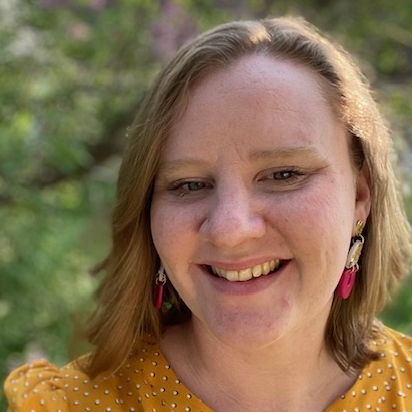 The proposal was accepted, the wedding plans are well in hand, and you two are making a great choice to sit down with someone for some premarital counseling.
The proposal was accepted, the wedding plans are well in hand, and you two are making a great choice to sit down with someone for some premarital counseling.
Whether you have been together for a few months or a few years at this point, you may feel that you have made a good start to your relationship. You may even think, “We don’t really need this.” Perhaps it’s a requirement by the pastor in order to use a particular church. Perhaps you were encouraged by your parents to get some counseling as a couple.
You might be wondering what you will talk about in a counseling session. Or you might be afraid of what sort of things will come up in the session. What if the rose-colored glasses fail you? Will you still be in love?
Premarital counseling can provide a strong foundation for your marriage. Let’s look at some of the topics that may come up.
Love languages and premarital counseling
The love language tests are fairly common and have to do with how a person receives and shows love. Understanding both your own and your partner’s love language can provide a helpful context for communication.
The five commonly used love languages are physical touch, words of affirmation, gift-giving, quality time, and acts of service. Knowing how you want to be shown love and how you like to show love is a huge source of conflict between couples.
A husband/boyfriend is great at gift-giving, but the wife/girlfriend really just wants to hold hands and hug. One partner finds acts of service valuable while the other would prefer to spend time with you.
Have a lot of conversations together about what makes you feel loved, and how you like to show love.
Style of conflict
This may seem like the opposite of the love languages, but it is equally important when it comes to understanding yourself and your partner. Do you need quiet to process something? Or do you need to vent when you are upset? Some people like to get through the issue as quickly as possible, while others need time to process it.
Even within this phase of wedding planning, there may be chances to observe and practice conflict. Disagreements will happen, and self-awareness can help those disagreements stay small.
Personality tests and how they can help in premarital counseling
Your personality doesn’t just come out in affection and arguments. Both you and your partner have a way of viewing and interacting with the world. You each have developed habits of work, priorities, values, etc.
If you have been a couple for a long time, you may have been able to learn these things about each other on a surface level. You are with a person whose personality jives with you. Yet even long-time couples can unearth new things about each other.
There are several personality tests: Enneagram, Myers-Briggs, and Strengths-Finder, to name a few. Knowing a little more about both your personality and your partner’s is one of the many ways you can continue to develop your intimacy as a couple. Introverts and extroverts can often balance each other, but too much pressure from one side or the other could create conflict.
Some personality tests are superficial, and others take a more complex look at how each person sees the world, themselves, and the people they interact with.
Personal history
This can be a sensitive set of subjects. There are so many reasons that diving into one’s personal history can uncover problems. However, the personal history, the traumas, the thrills, and the mundane have shaped how each of you is as an individual.
Understanding how you were raised, what you saw in the marriages around you, and the choices you made regarding education and career all shape the person you have come to be at this moment. As you pair your life with another, that history starts to weave itself into your relationship. This can show up in many unexpected ways, so talk about it with the help of a counselor.
Spiritual worldview
When two Christians are preparing for marriage, it can be easy to make assumptions about the spiritual health and perspective of the other. However, even within Christianity, there is a vast range of maturity and beliefs.
 By working with a Christian counselor, the couple can work through their beliefs and values. Those systems of faith play a huge role in the moral and ethical choices that you choose to make.
By working with a Christian counselor, the couple can work through their beliefs and values. Those systems of faith play a huge role in the moral and ethical choices that you choose to make.
Being married is a huge step in human intimacy, and it can have major implications for your intimacy with God. This is a good time to begin practicing faith conversations together. The journey of faith has difficulties. There may be seasons where one of you is holding up the other as they struggle with hard questions or doubts.
You are brother and sister in Christ and that comes before your marriage and will add greatly to your marriage. Praying together, studying the Bible as a couple, and deciding what church to attend, all these decisions are monumental to the Christian marriage.
The importance of sex
While the act of sex is physical, the role of sex in your relationship is integrated with everything else. Understanding of consent and comfort. Both parties should be able to express concerns, fears, and pain to their partner.
Building a safe environment sexually begins outside of the bedroom and continues long after you leave it. Having conversations now can help you create the trust needed to fully enter into sexual intimacy.
Planning for the future
Once the wedding is over there are years ahead to grow in your marriage. Nobody can perfectly plan their whole life ahead of time, but there are some conversations that it is important to have with your partner about your life together.
 A big one is children. Deciding about birth control or not, possible timelines, the chance of infertility, adoption, etc. Starting these discussions now will help you make practical decisions today.
A big one is children. Deciding about birth control or not, possible timelines, the chance of infertility, adoption, etc. Starting these discussions now will help you make practical decisions today.
While you may not want to think about the inevitable parting of death, it is a good idea to have some thoughts about things like emergency contacts, a living will, and relevant financial and medical documents.
Speaking of finances, money can become a huge point of contention between many couples. Building a budget together is an important part of being married. Discuss how bills will be managed, where you will get insurance, and what are the passwords to all the online subscriptions and accounts. Building a life together happens in the nitty gritty.
The nitty gritty also should involve conversations about expectations around your home. If both of you are working, how will meals and shopping happen? What kind of laundry system is necessary? What will the division of labor look like?
This brings us back to the question of children. If and when that happens, what will change or not change about your roles? Will one of you be a stay-at-home parent? How will that affect other areas of life and the division of labor?
Again, not all of these decisions can or should be made right now. As a healthy couple, you are setting yourself up for success by beginning the conversations. Things will come up that change you both, but by working together you will have success as a team.
The counselor’s role in premarital counseling
You may wonder why you need to have these discussions with a counselor. Why can’t the two of you just have these conversations on your own?
The counselor is valuable because they are emotionally removed from an intensely emotional relationship. As an objective third party, they can provide context and interpretation as the two of you learn to communicate and grow as a couple. Your counselor should be able to provide you with insight into things you have yet to understand or experience.
If you are ready to get started in some premarital counseling, call our offices today to schedule your first conversation.
“Kiss”, Courtesy of Wesley Tingey, Unsplash.com, Unsplash+ License; “Hug on the Beach”, Courtesy of Tyler Nix, Unsplash.com, CC0 License; “Loving Couple”, Courtesy of Leighann Blackwood, Unsplash.com, Unsplash+ License; “Engaged”, Courtesy of Tyler Nix, Unsplash.com, CC0 License
-
Caitlin Mallery: Author
Caitlin Mallery is a freelance writer, mother of four, avid reader, and amateur gardener from the Pacific Northwest. When she is not writing or chauffeuring children hither, thither, and yon, she works as a hospital chaplain.
“Working in spiritual...
DISCLAIMER: THIS ARTICLE DOES NOT PROVIDE MEDICAL ADVICE
Articles are intended for informational purposes only and do not constitute medical advice; the content is not intended to be a substitute for professional medical advice, diagnosis, or treatment. All opinions expressed by authors and quoted sources are their own and do not necessarily reflect the opinions of the editors, publishers or editorial boards of Stone Oak Christian Counseling. This website does not recommend or endorse any specific tests, physicians, products, procedures, opinions, or other information that may be mentioned on the Site. Reliance on any information provided by this website is solely at your own risk.




